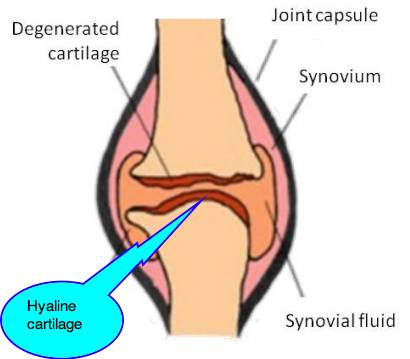What Is Hyaline Cartilage and Where Is It Found

Hyaline cartilage is a simple tissue, with no nerves or blood vessels attached to it. It is found at the end of bones, a shiny, slippery and bluish-gray in colour. The main function of hyaline cartilage is to protect bones. Even though it does not have blood supply or nerve communication, it serves as cushion for the bones. Hyaline is one of three types of cartilages found in the human body. Others are elastic cartilage and fibrocartilage. The function of these cartilages is same, to protect bones in the body.
Instructions
-
1
Hyaline cartilage is found on end of the bones and the main function of this tissue type part is to protect bones. The word hyaline is taken from Greek word translucence, and cartilage is referred with this name because of its similar structure.
-
2
Hyaline cartilage is a tissue with no blood vessels and nerves attached to it. It is slippery, shiny, firm and bluish-gray in colour. It serves as cushion to bones, protecting them against any adversity.
-
3
Hyaline cartilage is one of three cartilages found in the human body. Others two are elastic cartilage and fibrocartiliage.
-
4
Hyaline cartilage is very firm, firmer than muscles and stronger than bones. But it is flexible than any other part of the body. The formation of the tissues is basically structured to protect the bones and its different features.
-
5
Hyaline cartilage is found at end of bones in the human body, attached directly to upper areas of the bones. It does not have nerve or blood line attached to it, although sometimes some fat and other elements can be found around it.
-
6
Hyaline cartilage is very flexible and works to absorb any sort of pressure put on the bones, before in fact the pressure is reached to the bones. However, it has certain level of absorbing the force pushed against bones.
-
7
A particular problem a person can suffer after damage of cartilage is that these cartilages do not grow as faster as other parts of the human body. Since they do not have a blood line attached to them, their growth is also not very easy. The damage of these cartilages is quicker in the senior people, when its growth almost stops.
-
8
The lack of protection to bones through cartilages can cause pain in the bones, because they are then directly exposed to outside force and pressures. This is the reason that elder people feel pain in their bones especially around the knee areas more often.





